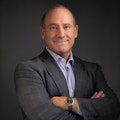‘Next-Generation Manufacturing’ About People as Much as Technology
Everyone knows the business of making stuff in America continues to change dramatically. We’re quickly becoming a nation of advanced manufacturers, with myriad innovative technologies improving products and processes. But the transformation goes well beyond the exponential growth of robots, sensors, and artificial intelligence.
As fast as the world of manufacturing is evolving, so is the workforce. When we talk about next-gen manufacturing, we’re not just talking about products and processes; we’re talking about people. In fact, maintaining our competitive advantage in global manufacturing starts with people.
Much has been written about the challenge of finding workers with appropriate STEM skills to work on the modern shop floor, as well as in research and engineering departments. Research shows that of a projected 3.5 million manufacturing jobs expected to be available in the United States between 2015-2025, 2 million of them could go unfilled. Not only will companies be competing for scarce human talent, but they must also focus on training and developing the people they already employ to ensure workers can keep up with the changes.
What hasn’t been discussed nearly as much as the skills gap is the cultural evolution currently occurring, which will prove as important to attracting and keeping employees as STEM education. For the first time in history, the workforce will comprise five generations of Americans:
- the Silent Generation (born pre-1946),
- Baby Boomers (1946 to 1964),
- Gen Xers (1965 to 1980),
- Millennials (roughly 1981 to 1995),and within a few years, greater amounts of those in
- Gen Z (1996 to 2010) in the workforce.
For the first three, corporate culture took a back seat to security and a paycheck in priority. But the final two generational cohorts are not just recipients of all the change occurring in society; they are leading the charge. Many analyses have been undertaken to better understand what drives the 79 million millennials, and more will be needed to decipher the following generations. One study by Boston Consulting Group captures the essence of how these new generations’ expectations are far different from their predecessors.
For starters, anyone raised with the internet and a smartphone in their pocket puts a premium on “speed, ease, efficiency, and convenience.” Overly bureaucratic companies are on notice.
Millennials also trust people with first-hand experience more than corporate and academic experts – hence, their use of social media to crowdsource their information. This means for companies to connect with their new employees, they must build a foundation of trust and nurture their communities.
Finally, millennials strongly believe they can make the world a better place. That ties into an expectation that companies must have a social conscience, and the corollary that businesses will put their employees’ needs first. Companies that are transparent and perceived as caring will make greater headway with the newer generations.
Manufacturers who want to attract and keep new employees must understand how the cultural evolution is changing the expectations of the newest generations. As BCG notes, “Those companies that truly get the millennials and engage with them appropriately have an opportunity to differentiate themselves ….”
Stephen Gold is president and CEO of MAPI. Over the past three decades, he has represented U.S. manufacturers in a variety of senior-level roles in nonprofit membership organizations, including in government relations, communications, and operations. He is a contributing columnist for IndustryWeek. He regularly writes on topics such as the millennial workforce, automation, and government policy. He organizes MAPI’s annual Executive Summit, a conference at which CEOs and other senior executives share best practices on the trends shaping the manufacturing sector.
About the Author

Stephen Gold
President and Chief Executive Officer, Manufacturers Alliance
Stephen Gold is president and CEO of Manufacturers Alliance. Previously, Gold served as senior vice president of operations for the National Electrical Manufacturers Association (NEMA) where he provided management oversight of the trade association’s 50 business units, member recruitment and retention, international operations, business development, and meeting planning. In addition, he was the staff lead for the Board-level Section Affairs Committee and Strategic Initiatives Committee.
Gold has an extensive background in business-related organizations and has represented U.S. manufacturers for much of his career. Prior to his work at NEMA, Gold spent five years at the National Association of Manufacturers (NAM), serving as vice president of allied associations and executive director of the Council of Manufacturing Associations. During his tenure he helped launch NAM’s Campaign for the Future of U.S. Manufacturing and served as executive director of the Coalition for the Future of U.S. Manufacturing.
Before joining NAM, Gold practiced law in Washington, D.C., at the former firm of Collier Shannon Scott, where he specialized in regulatory law, working in the consumer product safety practice group and on energy and environmental issues in the government relations practice group.
Gold has also served as associate director/communications director at the Tax Foundation in Washington and as director of public policy at Citizens for a Sound Economy, a free-market advocacy group. He began his career in Washington as a lobbyist for the Grocery Manufacturers of America and in the 1980s served in the communications department of Chief Justice Warren Burger’s Commission on the Bicentennial of the U.S. Constitution.
Gold holds a Juris Doctor (cum laude) from George Mason University School of Law, a master of arts degree in history from George Washington University, and a bachelor of science degree (magna cum laude) in history from Arizona State University. He is a Certified Association Executive (CAE).
